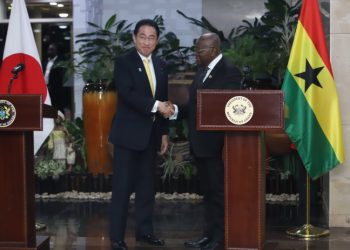
Introduction
Ghana’s energy sector has faced significant challenges over the past two decades, with frequent power shortages affecting businesses and households. The country’s reliance on hydro and fossil fuels for electricity has left it vulnerable to fluctuations in global fuel prices and environmental factors.
As Ghana looks to build a more stable, sustainable future, solar energy stands out as a powerful, untapped resource. With global momentum behind renewable energy and the urgent need for climate action, solar power offers not just a solution to Ghana’s energy insecurity but a transformative opportunity for economic and environmental leadership.
From a banking perspective, unlocking solar energy’s potential involves navigating financial, regulatory, and infrastructure challenges. Banks and financial institutions must play a leading role in facilitating access to financing, encouraging local manufacturing, and integrating solar energy into the broader economic strategy. This article delves into the strategic importance of solar energy for Ghana, the financial mechanisms needed to drive its adoption, and the global, regional, and national contexts shaping its future.
Harnessing Solar Energy: Global and Regional Perspectives
Globally, renewable energy has become a cornerstone of the fight against climate change, with solar power leading the charge. In 2021, solar energy accounted for nearly 3% of global electricity generation, and its capacity is projected to grow by 17% annually until 2030, driven by the decreasing costs of solar photovoltaic (PV) technology. The International Energy Agency (IEA) estimates that solar energy could provide up to 27% of the world’s electricity by 2050, significantly reducing global reliance on fossil fuels.
Regionally, Africa’s solar energy potential is immense, with an estimated 10 terawatts of solar capacity. However, the continent accounts for just 1% of global solar capacity, highlighting the significant gap between potential and reality. In West Africa, Ghana stands out with its average solar irradiance of 4 to 6 kWh/m²/day. Yet, solar energy contributes less than 1% to Ghana’s energy mix. With the country’s energy demand expected to rise by 10% annually, solar power offers a sustainable pathway to meet these needs while reducing the country’s reliance on imports and fossil fuels.
Solar Energy and Energy Security in Ghana
Ghana’s energy challenges are well-documented. In 2014, the country experienced one of its most significant energy crises, colloquially known as “Dumsor,” which caused widespread blackouts and economic disruption. The crisis underscored the fragility of Ghana’s energy infrastructure, heavily reliant on hydropower and natural gas. According to the Ghana Energy Commission, hydro accounts for 38% of the country’s electricity generation, while natural gas-fired thermal plants supply 55%. However, the volatility of gas imports and dwindling water levels in the Akosombo Dam pose long-term risks to the country’s energy security.
Solar energy can mitigate these risks by diversifying the energy mix and providing a reliable, renewable alternative. The transition to solar power is particularly urgent given Ghana’s economic reliance on stable power for key industries such as mining, manufacturing, and telecommunications. A 2019 report by the African Development Bank (AfDB) estimated that power outages cost the Ghanaian economy about 2% of GDP annually, a staggering figure that could be alleviated by solar investments.
Financing the Solar Transition: A Banking Practitioner’s Perspective
From a financial practitioner’s perspective, the path to unlocking solar energy lies in creating an enabling environment for investments. The high upfront costs of solar installations remain a barrier for many households and businesses. However, innovative financing models, such as concessional loans, green bonds, and public-private partnerships, can make solar projects more accessible.
For example, the Ghana Renewable Energy Fund, established in 2020, provides financial support for renewable energy projects. As of 2023, the fund had allocated $200 million in concessional loans to solar projects, helping to reduce capital expenditure for both small-scale and utility-scale solar installations. Banks and financial institutions can complement these efforts by offering tailored financing products, such as reduced-interest loans for solar installations, lease-to-own models, and partnerships with certified solar vendors.
Stanbic Bank, for instance, introduced a solar energy finance product in 2024, offering loans with flexible repayment terms to households and businesses seeking to install solar panels. Similar initiatives from other financial institutions could accelerate the adoption of solar energy across the country. Net metering, which allows consumers to sell excess electricity generated by solar panels back to the grid, further enhances the financial viability of solar investments.
Local Manufacturing and Economic Benefits
The development of a local solar manufacturing industry is another critical aspect of Ghana’s solar transition. Currently, Ghana imports most of its solar panels and related equipment, adding to the cost of installations. Local manufacturing could reduce these costs while creating jobs and fostering technical expertise. In 2022, the Ghana Investment Promotion Centre (GIPC) announced tax incentives for companies involved in renewable energy manufacturing, a positive step towards building a domestic solar industry.
Data from the International Renewable Energy Agency (IRENA) suggest that the renewable energy sector could create over 10,000 jobs in Ghana by 2030, with solar energy accounting for a significant share. Local assembly plants and training programs for solar technicians would not only reduce unemployment but also position Ghana as a regional leader in renewable energy expertise.
International Support and Collaboration
Ghana’s solar energy transition will require substantial capital investment and technical expertise, much of which will need to come from international partners. Developed nations have pledged billions in climate finance, with the European Union and the United States committing $100 billion annually to support developing countries in their renewable energy transitions. The World Bank’s Scaling Solar initiative, which has helped finance large-scale solar projects in Zambia and Senegal, provides a blueprint for similar projects in Ghana.
In 2023, Ghana signed a $500 million agreement with the World Bank to support its renewable energy development, including solar projects. These international partnerships are crucial for financing large-scale solar infrastructure and achieving Ghana’s goal of generating 10% of its electricity from renewable sources by 2030.
Conclusion
For Ghana, solar energy represents more than just a solution to energy insecurity, it is a pathway to sustainable economic growth and environmental leadership. With solar power, Ghana can reduce its carbon footprint, stabilize its energy supply, and unlock new economic opportunities through job creation and local manufacturing. However, this transition requires a coordinated effort from policymakers, financial institutions, and international partners.
The role of the banking sector is pivotal. By offering innovative financing solutions and supporting renewable energy projects, banks can drive the adoption of solar energy, making it accessible to a broader segment of the population.
With the right policies, financial incentives, and international support, Ghana can position itself as a leader in Africa’s renewable energy landscape, setting an example for other nations to follow. As Ghana embarks on this journey, the strategic vision of financial practitioners, combined with the global push for sustainable energy, will be crucial in transforming solar energy from an untapped resource to a cornerstone of national development.
DISCLAIMER: The Views, Comments, Opinions, Contributions and Statements made by Readers and Contributors on this platform do not necessarily represent the views or policy of Multimedia Group Limited.
DISCLAIMER: The Views, Comments, Opinions, Contributions and Statements made by Readers and Contributors on this platform do not necessarily represent the views or policy of Multimedia Group Limited.
- President Commissions 36.5 Million Dollars Hospital In The Tain District
- You Will Not Go Free For Killing An Hard Working MP – Akufo-Addo To MP’s Killer
- I Will Lead You To Victory – Ato Forson Assures NDC Supporters
Visit Our Social Media for More




